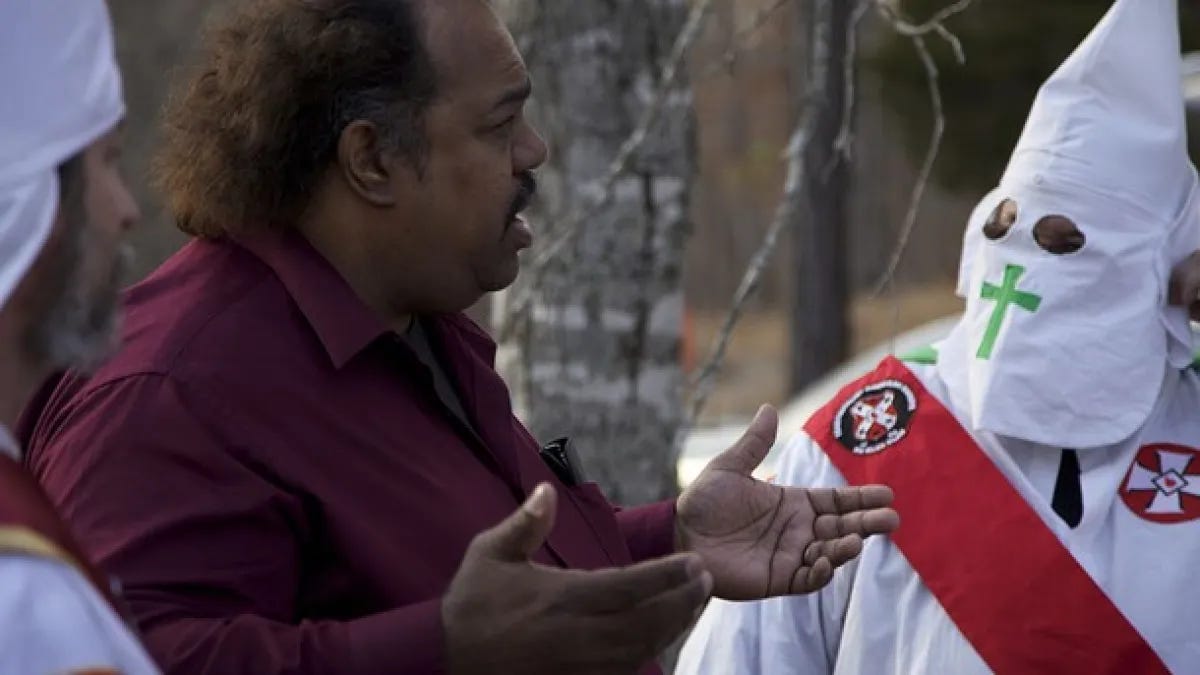Demonstrating Healthy Conflict In Education
Culture wars, claims of indoctrination, book bans and more
In today's polarized society, it can feel like productive conversations and meaningful dialogue are becoming increasingly rare. The culture wars in education and beyond have fueled claims of indoctrination and led to calls for book banning and the restriction of certain topics in schools. However, Ken Futernick, an educator and host of the podcast "Courageous Conversations About Our Schools," believes that engaging in healthy conflict and dialogue is crucial for bridging divides and finding common ground.
Futernick's podcast aims to create a space where people with different perspectives can come together and have courageous conversations. The focus is on dialogue rather than debate, as debate often prioritizes winning and scoring points rather than understanding and finding solutions. By embracing curiosity over confrontation, participants can listen to one another without interruption and strive to truly understand each other's viewpoints.
The Power of Listening and Trust
One of the key insights from Futernick's work is the importance of listening and building trust in fostering productive conversations. While facts and logic are essential, they are not enough to change someone's perspective if there is no trust or relationship established. Amanda Ripley, a journalist and author, emphasizes that relationships, rather than facts, are more likely to lead to persuasion and open-mindedness.
When engaging in dialogue, it is crucial to create an environment where people feel trusted and respected. This means being open to vulnerability and acknowledging that we may not have all the answers. By demonstrating empathy and actively listening to others, we can challenge our own assumptions and be more open to considering different perspectives.
Moving Beyond Shallow Trigger Words
In today's politically charged climate, it is easy to get caught up in shallow trigger words and assume that everyone on the other side of an issue holds extreme views. However, as Futernick and David discuss, drilling down into specific policies and engaging in nuanced conversations can reveal more areas of agreement than we might expect.
For example, the topic of book banning often sparks heated debates. However, when examining the issue more closely, it becomes clear that there are nuanced positions. While no one advocates for all books to be available without any restrictions, the disagreement lies in where to draw the line. By exploring the complexity of issues like book banning, immigration, and parental rights in schools, we can move beyond surface-level disagreements and find common ground.
The Power of Relationships in Changing Perspectives
Daryl Davis, a black man who spent 30 years befriending members of the Ku Klux Klan, provides a powerful example of the transformative power of relationships. Through dialogue and empathy, Davis was able to persuade over 200 Klansmen to leave the KKK. His approach demonstrates that if we want to persuade others or foster understanding, it must happen through empathy and relationships.
In conclusion, bridging divides and finding common ground requires engaging in healthy conflict, listening, and building trust. While facts and logic are important, they are not enough on their own. By creating spaces for dialogue, challenging our assumptions, and fostering relationships, we can begin to break down barriers and work towards a more united society.
Let us remember the words of Ken Futernick:
"It starts with listening. It seems like we're perhaps giving oxygen to really bad ideas sometimes, but in fact, the ideas aren't always as bad, or the particular ideas that someone has aren't as bad as we thought they might have been. It's not that there aren't really bad ideas being promoted out there, but sometimes the people that we assume embrace those ideas actually don't. And if we listen to them, they're willing to think about it, or, and if that happens, and if we're willing to do the same, it gives me a sense of hope about our future of our school systems and our country."
New This Week in Outrage Episode!
It’s everything the Outrage Overload podcast is not. It’s not edited. It’s not scripted. It’s lightly researched. It’s David and Lisa talking about this week in outrage, what was in the news, in the memes, and maybe finding some backstory with a humorous (at least to us) twist.
Lisa's $11 million letter - 2/11/2024
This week, Lisa and David talk about Supreme Court hearing on Colorado ballot; Social media companies before Congress (again); Matt Gaetz being reinvestigated by the House Ethics Committee; Lisa inheriting $11 million from a distant relative, and more.






